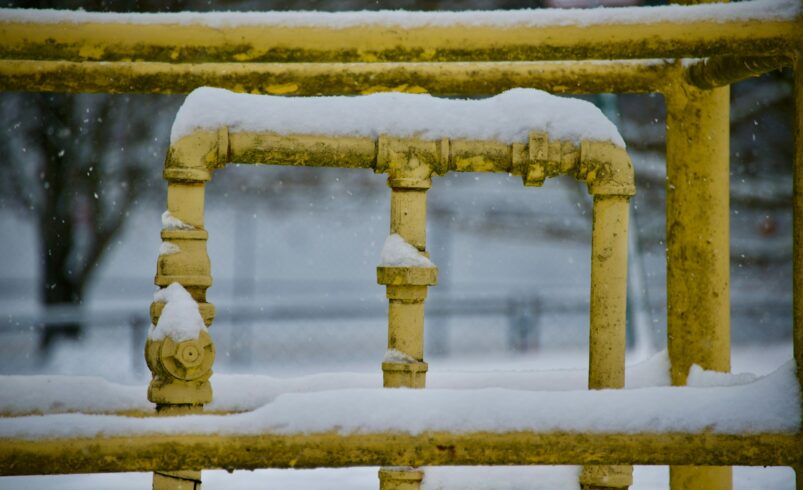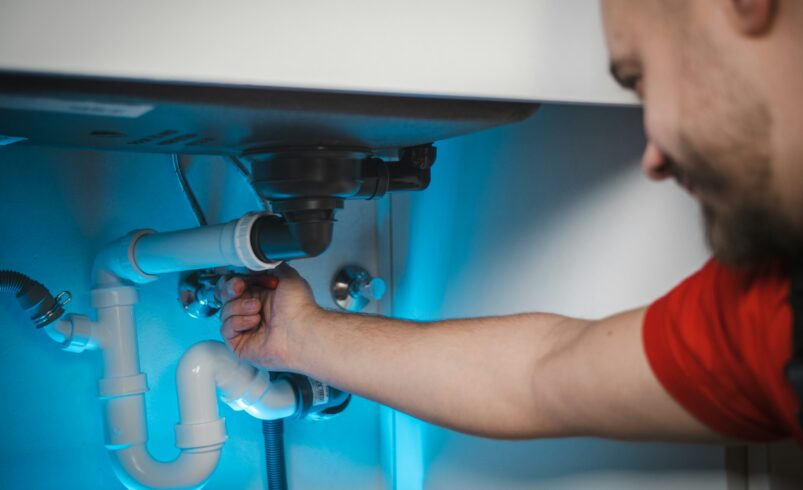Extreme cold weather can present significant challenges to industrial operations, particularly when it comes to maintaining the flow of fluids through pipes.
Frozen pipes are more than just an inconvenience; they can lead to production downtime, costly repairs, and safety hazards.
This is where industrial heated pipes become a game-changer, offering reliable freeze protection and temperature control to keep operations running smoothly even in the harshest environments.
If you’re curious about why industrial heated pipes are an essential investment in cold regions, keep reading.
This post will explore the top benefits of heated pipe systems, their applications, and how products like Heatline can transform your industrial operations.
Why are Pipes Vulnerable to Freezing?
Before we discuss solutions, it’s important to understand why pipes freeze in the first place.
When temperatures drop below freezing, the water or fluid inside pipes can solidify, causing expansion. This can lead to pipe bursts, structural damage, and interrupted operations.
Industrial environments are especially prone to these risks since long pipelines often remain exposed to outdoor weather conditions or poorly insulated indoor spaces.
Freezing doesn’t just affect the physical state of pipes. It can halt chemical processes, transportation of fluids, and other critical functions.
Additionally, downtime from frozen pipes can cost companies thousands of dollars per hour in lost productivity.
What are Industrial Heated Pipes?
Industrial heated pipes are pipes equipped with heat trace systems that maintain a consistent internal temperature, preventing fluids from freezing.
These systems use electrical cables or other heating elements specially designed to match the needs of industrial environments.
High-quality heated pipes, such as those offered by Heatline, provide advanced temperature control that ensures pipes stay operational even in sub-zero temperatures.
The Benefits of Industrial Heated Pipes
1. Reliable Freeze Protection
The primary advantage of heated pipes is protecting against freezing. These systems can keep fluids in a liquid state even when external temperatures plummet, ensuring seamless operations.
Whether temperatures drop to -10°F or -50°F, industrial heated pipes remain effective in preventing freeze damage.
2. Cost Efficiency
Frozen or burst pipes can result in substantial repair and replacement costs. By investing in heated pipes, businesses save money by avoiding maintenance costs, production downtime, and emergencies caused by sudden pipe failures.
While the upfront cost of installing heated pipes may seem steep, the return on investment quickly becomes evident when weighed against the expenses of conventional repairs.
3. Temperate Fluid Transport
Heated pipes allow precise temperature control, which is crucial for transporting sensitive liquids such as chemicals, oils, or fuel. Without adequate heat, viscous fluids can thicken, slowing down processes or becoming unusable altogether.
Heated pipes ensure fluids maintain the right consistency and temperature for efficient operation.
4. Enhanced Safety
Freezing pipes aren’t just inconvenient; they can create unsafe conditions. Sudden bursts may release hazardous chemicals or substances, compromising worker safety and environmental compliance.
Heated pipe systems reduce these safety risks and ensure a controlled environment.
5. Versatility Across Industries
From wastewater management to the oil and gas sector, industrial heated pipes are used across multiple industries to ensure uninterrupted operations.
Applications include chemical processing, agricultural irrigation systems, and even food manufacturing.
An excellent example of versatility is Heatline’s frost protection solutions, which cater to residential users and large-scale industrial operations alike.
Applications of Industrial Heated Pipes
Industrial heated pipes are crucial in environments where freezing conditions can pose a risk. Below are some common industries that benefit from their installation:
1. Oil and Gas
Oil pipelines are vulnerable to freezing since crude oil can severely thicken at low temperatures. Heated pipes help maintain the necessary flow and temperature conditions to prevent slowdowns.
2. Water Management
Wastewater systems and water distribution lines are often exposed to outdoor conditions, making them prone to freezing. Heated pipes provide critical freeze protection in rural and municipal water systems.
3. Chemical Industry
Certain chemicals require precise temperatures for transport and processing. Heated pipes ensure consistent temperature control, safeguarding product quality and operational efficiency.
4. Food and Beverage
Temperature-sensitive processes like brewing and canning rely on heated pipes to ensure smooth operations during harsh weather. They also prevent contamination caused by frozen or burst pipes.
Heatline: A Leader in Heated Pipe Solutions
When it comes to industrial heated pipes, Heatline is a name trusted by industries worldwide. Known for its innovative approach to freeze protection, Heatline offers a range of products designed to withstand extreme conditions.
Their systems are energy-efficient, reliable, and customizable to meet the specific needs of industrial applications.
Some standout features of Heatline’s heated pipes include:
- Superior Durability: Engineered to endure the toughest industrial environments.
- Energy Efficiency: Heatline systems prioritize sustainability without compromising performance.
- Easy Installation: Minimal disruption during system setup, allowing for seamless integration into existing operations.
By choosing a solution like Heatline, businesses can safeguard their pipelines and reduce long-term risks and expenses.
How to Choose the Right Heated Pipe System
Not all heated pipes are created equal. To ensure you select the best system for your needs, consider the following:
- Temperature Range
Ensure the heating system meets the required temperature specifications for your industry.
- Energy Usage
Look for systems like Heatline that provide effective heat with minimal energy consumption.
- Customization Options
Ideally, your heating system should be adaptable to different pipe diameters, lengths, and materials.
- Safety Features
An effective heated pipe system should include built-in safety controls to prevent overheating.
- Reputation of the Manufacturer
Work with trusted brands like Heatline for proven reliability and excellent customer support.
Protect Your Operations With Industrial Heated Pipes
Whether you’re managing an oil pipeline, municipal water infrastructure, or delicate chemical processes, industrial-heated pipes are a vital asset in cold weather.
They offer superior freeze protection, and effective temperature control, and ensure that your operations remain safe, efficient, and profitable. Don’t wait for harsh winters to wreak havoc on your business.
Explore the high-quality solutions offered by Heatline and experience the benefits of industrial heated pipes firsthand.










